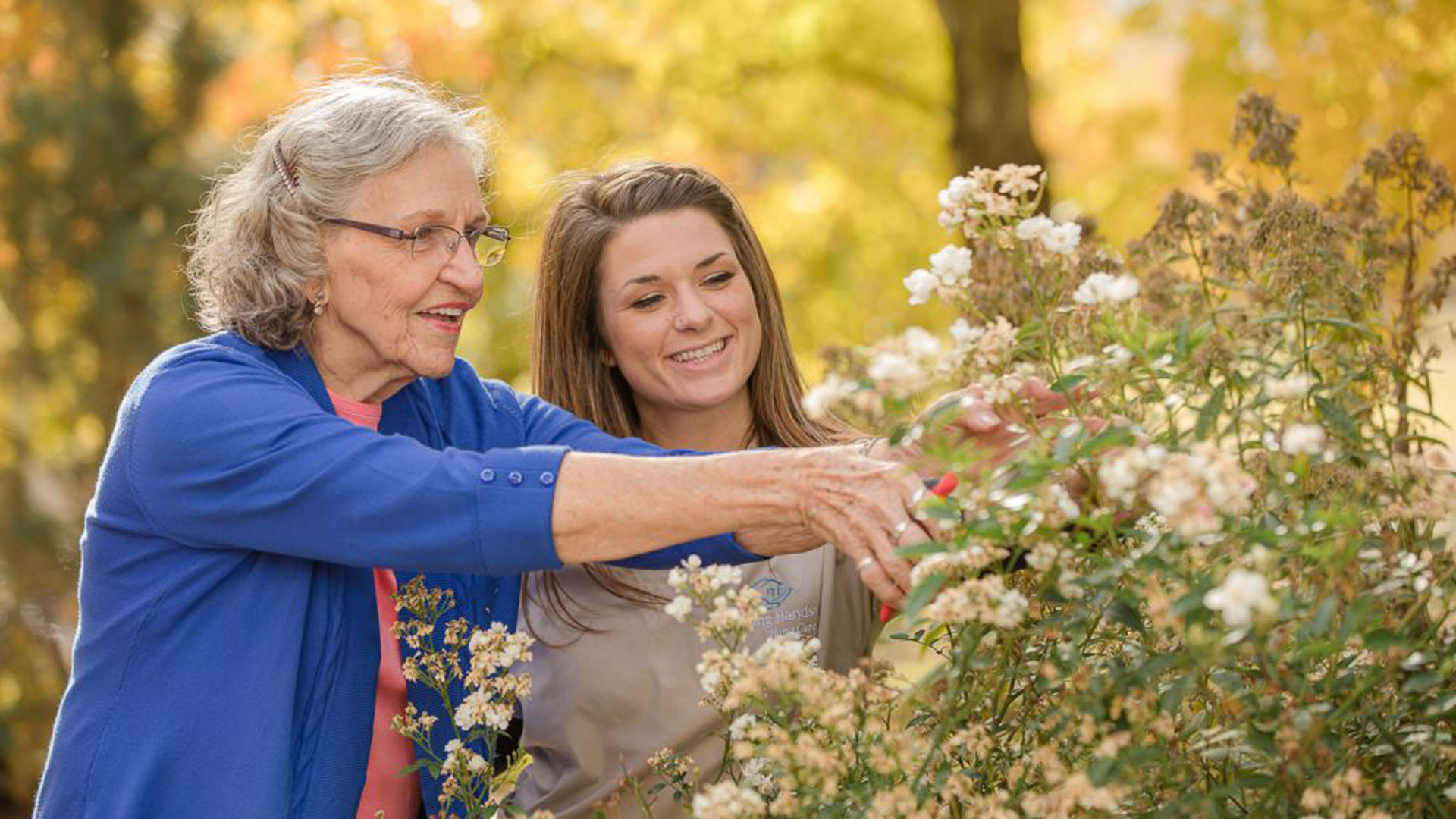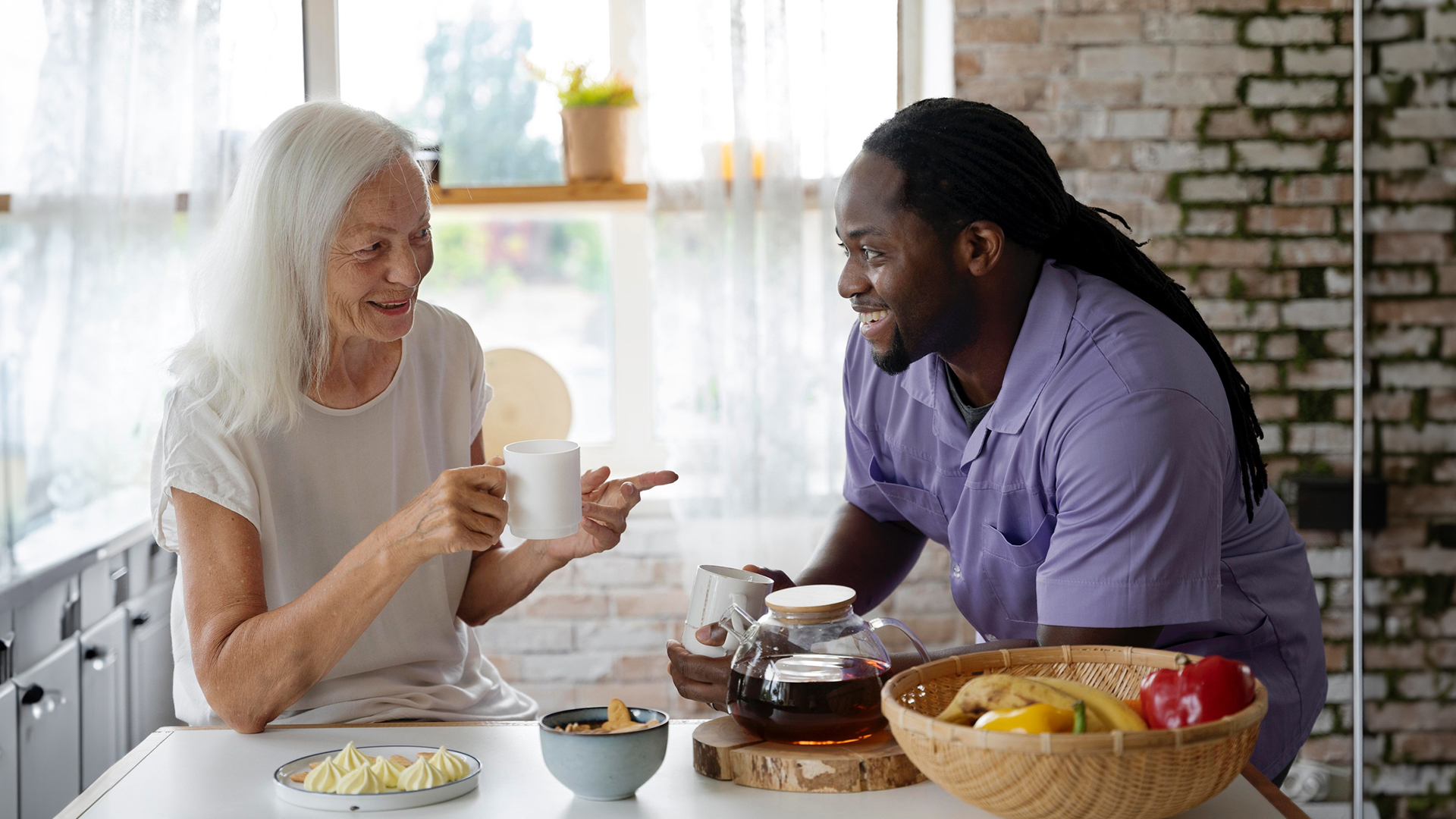February is National Senior Independence Month, a time to celebrate and promote the autonomy of our cherished elders. While some seniors may require assistance, fostering independence remains a paramount goal for their well-being. In this blog post, we explore thoughtful ways to support seniors in feeling more independent, even when they rely on the assistance of caregivers and loved ones.
1. Encourage Decision-Making: Seniors, like most people, often appreciate having a say in their daily lives. Involve them in decision-making, whether it’s choosing daily activities, meal preferences, or even the layout of their living space. Empowering them with choices reinforces a sense of control.
2. Personalized Care Plans: Craft care plans that are personalized to the unique needs and preferences of the individual. Tailoring assistance to individual requirements respects their autonomy while addressing specific health or mobility challenges.
3. Foster Hobbies and Interests: Support the individual in pursuing their hobbies and interests. Whether it’s reading, painting, gardening, or engaging in social activities, these pursuits contribute to a sense of purpose and individuality.
4. Technology for Connectivity: Introduce user-friendly technology that enhances connectivity. Video calls, social media, and online communities can help stay connected with family and friends, reducing feelings of isolation.
5. Maintain Physical Activity: Encourage regular physical activity appropriate to their abilities. Gentle exercises, walks, or chair yoga not only promote physical health but also empower seniors to maintain a level of independence in their mobility.
6. Implement Safety Measures: Implement safety measures that provide reassurance without compromising independence. Devices such as medical alert systems or home modifications can allow seniors to navigate their environment confidently.
7. Supportive Home Environment: Create an environment that supports independence. Organize living spaces to be easily navigable, label items for clarity, and incorporate assistive devices that enable seniors to perform daily tasks with minimal assistance.
8. Educational Opportunities: Encourage continued learning. Whether it’s attending classes, workshops, or participating in online courses, stimulating the mind contributes to a sense of accomplishment and ongoing personal development.
9. Celebrate Milestones: Acknowledge and celebrate milestones, both big and small. Recognizing achievements, no matter how minor, reinforces a positive sense of self-worth and accomplishment.
10. Emotional Well-being Matters: Address emotional well-being as a crucial component of independence. Open communication, active listening, and providing emotional support contribute to a positive mental outlook.
Legacy Homecare LA empowers your Loved One
Legacy Homecare LA is dedicated to fostering independence among its clients by implementing personalized and comprehensive care strategies. We prioritize promoting the independence of our clients by ensuring involvement in decision-making processes. Whether it’s selecting daily activities, meal preferences, or creating a comfortable living environment, we value and incorporate the individual choices of each client. We are committed to creating an environment that empowers our clients to maintain their independence while receiving the necessary support and care.
Reach out to Legacy Homecare LA at (310) 974-4517 or Contact Us online.
You can find us on Google Maps: Legacy Homecare LA






